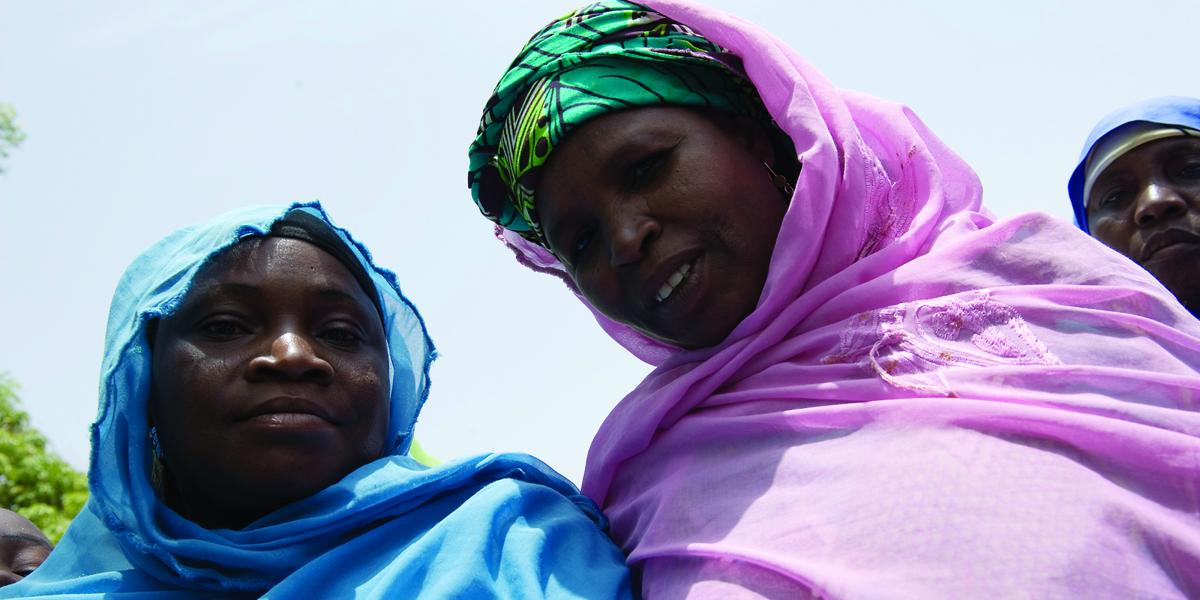In Nigeria, Emirs Mobilize Change
Tradition can exact a heavy toll on women’s health.
In the cities and villages of northern Nigeria, for example, cultural taboos forbid pregnant women from eating certain nutritious foods like milk or eggs. Other traditions dictate that women have their first child at home—making it more difficult for a skilled birth attendant to be present for delivery and increasing risks for mother and baby. Perhaps most dangerous of all, girls often marry very young and sometimes conceive as early as age 11—creating grave risks for girls not yet physically ready to have a baby.
In such cultures, outsiders’ efforts to change traditions often are rebuffed. “It’s not likely that a technical professional from overseas would be able to pass the message across in a culturally acceptable way to the community,” says Oladosu A. Ojengbede, MBBS, a professor of Obstetrics and Gynecology at the University of Ibadan in Nigeria.
The solution? Work with traditional rulers. Ojengbede and the Bloomberg School’s Bill and Melinda Gates Institute for Population and Reproductive Health are collaborating with Nigerian emirs. The political and religious leaders wield enormous power. In traditional communities, their words carry the weight of decrees that must be obeyed. “The emirs are the very strong bridge between the government and community members,” says Ojengbede, a longtime Gates Institute collaborator. “They are also agents of change. They can transform old, negative practices into progressive new practices that improve health at the community and household level.”
The collaboration began in 2008 when Gates Institute director Amy Tsui, PhD, Ojengbede and others were introduced to the Emir of Suleja by Nigerian Rep. Saudatu Sani and soon began exploring options for collaboration. In November 2010, the Gates Institute and the International Vaccine Access Center brought the emirs of Suleja, Birnin Gwari and Damaturu to Baltimore to learn about maternal and child health issues. Faculty experts, including Janet DiPietro, David Paige and Henry Mosley, briefed the emirs on fetal and child development, risk factors for maternal mortality and morbidity, and other topics. The rulers also learned about the science behind public health staples such as attended births, child spacing, breastfeeding, immunizations and nutrition. In addition, the emirs saw a documentary about the risks for obstetric fistula and even death that pregnancy poses for girls.
The November meeting helped the emirs understand the significant role they could play in the health of their people. “They never knew how helpful their involvement could be,” says Ojengbede, director of the Centre for Population & Reproductive Health at Ibadan. They learned that a community’s health depends on much more than doctors and hospitals.
“I learned a lot. I can tell my people what they can do to lead a better life, a healthier life,” says His Royal Highness Zubair Jibril Maigwari II, Emir of Birnin Gwari. “Some of the things we saw made us feel there is need for intervention. Even though we can’t do it directly ourselves, in concert with the state and local governments, we can.”
The emirs who visited Baltimore will present what they have learned to the Sultan of Sokoto. The Sultan is both the cultural leader of more than 100 traditional rulers in the northern part of the country and the spiritual leader of all Muslims in Nigeria. The hope, according to Ojengbede, is that the Sultan and the other emirs will endorse maternal and child health efforts for their people. The emirs can also mobilize communities to create and maintain specific health programs, for example, increasing community immunization coverage to improve child health.
The three emirs who visited Baltimore have become greater advocates for maternal and child health, says Tsui.
“A statement by an emir who says girls shouldn’t be married so young or prioritizes women getting adequate obstetric care will go a long way,” Tsui says. “An emir who says it’s appropriate to use contraception between births to space the births sends a tremendously powerful message.”
